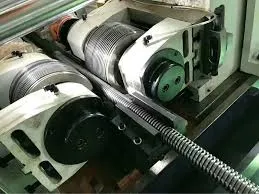
-
 Afrikaans
Afrikaans -
 Albanian
Albanian -
 Amharic
Amharic -
 Arabic
Arabic -
 Armenian
Armenian -
 Azerbaijani
Azerbaijani -
 Basque
Basque -
 Belarusian
Belarusian -
 Bengali
Bengali -
 Bosnian
Bosnian -
 Bulgarian
Bulgarian -
 Catalan
Catalan -
 Cebuano
Cebuano -
 Corsican
Corsican -
 Croatian
Croatian -
 Czech
Czech -
 Danish
Danish -
 Dutch
Dutch -
 English
English -
 Esperanto
Esperanto -
 Estonian
Estonian -
 Finnish
Finnish -
 French
French -
 Frisian
Frisian -
 Galician
Galician -
 Georgian
Georgian -
 German
German -
 Greek
Greek -
 Gujarati
Gujarati -
 Haitian Creole
Haitian Creole -
 hausa
hausa -
 hawaiian
hawaiian -
 Hebrew
Hebrew -
 Hindi
Hindi -
 Miao
Miao -
 Hungarian
Hungarian -
 Icelandic
Icelandic -
 igbo
igbo -
 Indonesian
Indonesian -
 irish
irish -
 Italian
Italian -
 Japanese
Japanese -
 Javanese
Javanese -
 Kannada
Kannada -
 kazakh
kazakh -
 Khmer
Khmer -
 Rwandese
Rwandese -
 Korean
Korean -
 Kurdish
Kurdish -
 Kyrgyz
Kyrgyz -
 Lao
Lao -
 Latin
Latin -
 Latvian
Latvian -
 Lithuanian
Lithuanian -
 Luxembourgish
Luxembourgish -
 Macedonian
Macedonian -
 Malgashi
Malgashi -
 Malay
Malay -
 Malayalam
Malayalam -
 Maltese
Maltese -
 Maori
Maori -
 Marathi
Marathi -
 Mongolian
Mongolian -
 Myanmar
Myanmar -
 Nepali
Nepali -
 Norwegian
Norwegian -
 Norwegian
Norwegian -
 Occitan
Occitan -
 Pashto
Pashto -
 Persian
Persian -
 Polish
Polish -
 Portuguese
Portuguese -
 Punjabi
Punjabi -
 Romanian
Romanian -
 Russian
Russian -
 Samoan
Samoan -
 Scottish Gaelic
Scottish Gaelic -
 Serbian
Serbian -
 Sesotho
Sesotho -
 Shona
Shona -
 Sindhi
Sindhi -
 Sinhala
Sinhala -
 Slovak
Slovak -
 Slovenian
Slovenian -
 Somali
Somali -
 Spanish
Spanish -
 Sundanese
Sundanese -
 Swahili
Swahili -
 Swedish
Swedish -
 Tagalog
Tagalog -
 Tajik
Tajik -
 Tamil
Tamil -
 Tatar
Tatar -
 Telugu
Telugu -
 Thai
Thai -
 Turkish
Turkish -
 Turkmen
Turkmen -
 Ukrainian
Ukrainian -
 Urdu
Urdu -
 Uighur
Uighur -
 Uzbek
Uzbek -
 Vietnamese
Vietnamese -
 Welsh
Welsh -
 Bantu
Bantu -
 Yiddish
Yiddish -
 Yoruba
Yoruba -
 Zulu
Zulu
types of thread rolling machine
Types of Thread Rolling Machines
Thread rolling is a widely used manufacturing process that creates threads on cylindrical parts. It is a cold-forming technique that enhances the strength and precision of threads, leading to improved mechanical properties. Various types of thread rolling machines exist, each designed to cater to different production requirements and specifications. This article explores some common types of thread rolling machines and their applications.
1. Flat Die Thread Rolling Machines
Flat die thread rolling machines are among the most commonly used types in the industry. They consist of two flat dies that press against the workpiece as it is rotated, effectively forming the desired thread pattern. This type of machine is particularly suitable for rolling external threads on screws, bolts, and other similar fasteners. The advantages of flat die machines include high production rates and excellent surface finish, making them ideal for mass production.
2. Planetary Thread Rolling Machines
Planetary thread rolling machines utilize a unique mechanism where the workpiece is held stationary while multiple rolling dies rotate around it. This configuration allows for the simultaneous formation of several threads, significantly increasing production efficiency. Planetary machines are highly versatile and can be used to produce both external and internal threads. They are particularly useful in applications requiring precision, such as aerospace and automotive components.
3. Rotary Thread Rolling Machines
types of thread rolling machine

Rotary thread rolling machines operate based on a rotary motion that forms threads as the workpiece is rotated between two or more dies. These machines are known for their ability to produce high-strength threads with superior dimensional accuracy. They are commonly used in the manufacture of fasteners, such as bolts and nuts, where tight tolerances and high strength are crucial. Rotary machines are available in various sizes, making them suitable for small-scale production as well as large manufacturing operations.
4. Screw Thread Rolling Machines
Screw thread rolling machines are specifically designed to create screw threads on various components. These machines can handle different thread profiles and are typically equipped with advanced controls to ensure precision. They are utilized in a variety of industries, including automotive, construction, and electronics. The primary advantage of screw thread rolling machines is their ability to produce threads with minimal waste, making them an environmentally friendly option.
5. Multi-Station Thread Rolling Machines
Multi-station thread rolling machines incorporate multiple workstations that allow simultaneous processing of several workpieces. This configuration is ideal for high-volume production environments where speed and efficiency are paramount. Each station can be dedicated to a different operation, such as rolling, trimming, or quality inspection. These machines are known for their flexibility and can be adjusted to handle various workpiece sizes and thread types.
Conclusion
The choice of thread rolling machine largely depends on the specific requirements of the production process, including the type of thread to be formed, the material being used, and the desired production volume. With advancements in technology, modern thread rolling machines offer enhanced precision, productivity, and versatility, making them indispensable tools in the manufacturing of threaded components. As industries continue to evolve, the demand for efficient and reliable thread rolling solutions will only increase, driving further innovations in machine design and technology.
